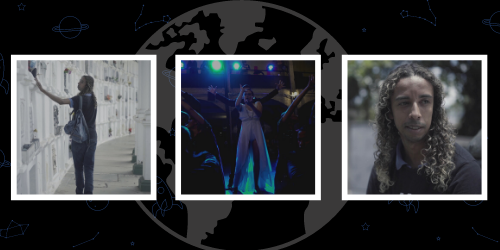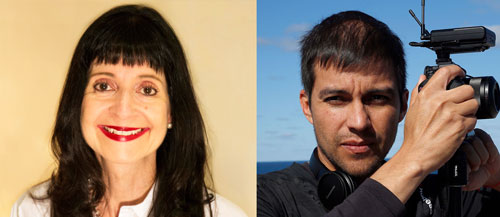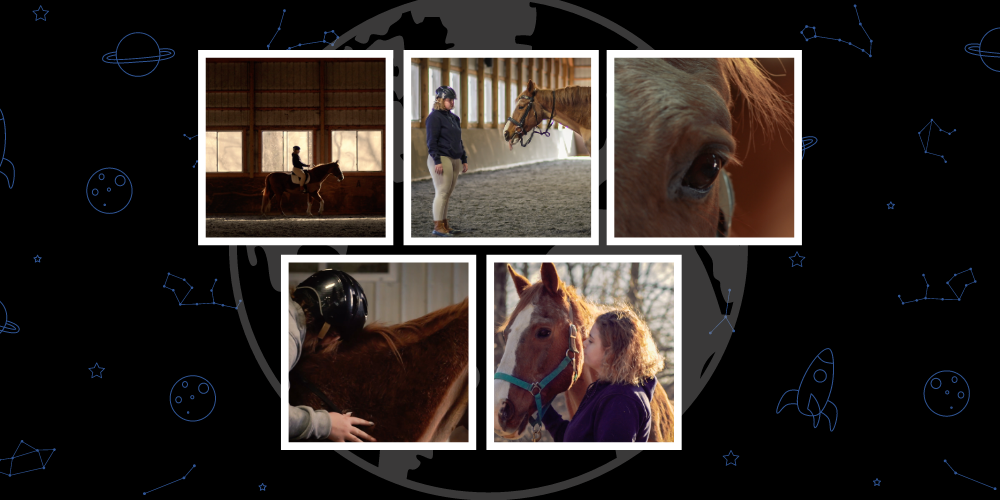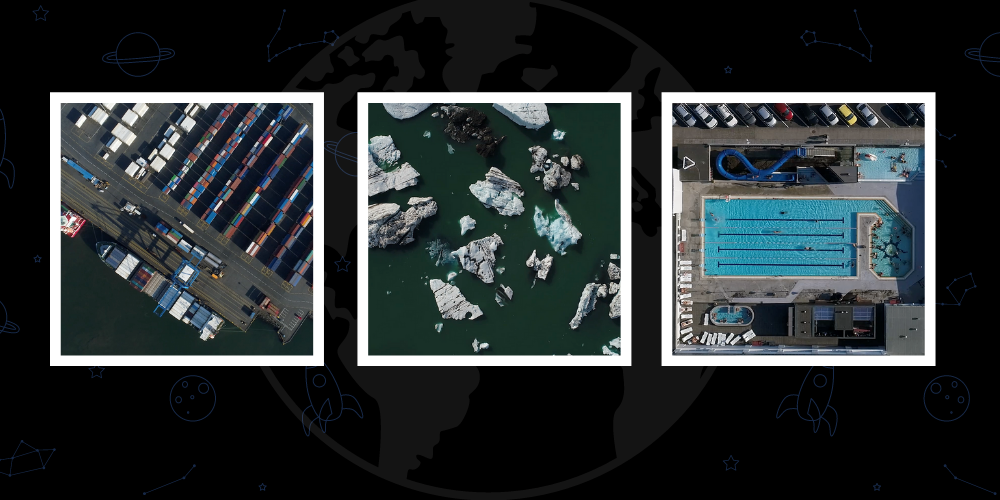This month, Planet Classroom audiences can watch Manrique, directed by Luis Barreto, on the Planet Classroom Network. It is the story of Yoiner Machado, the founder of a dance academy located in Manrique, a neighborhood in Medellin, Colombia. Machado is a teacher and professional dancer as well as a creator of methodologies focused on using the art of dance for coexistence and peace-building. For over 13 years, Machado has been dedicated to bringing communities together, and his important work has impacted thousands of lives. His motto, which has spread globally, is “We are a family.”
Luis Barreto’s first film project was in Ghana in 2009. Since then, his acclaimed talents as a filmmaker have taken him to numerous remote locations to tell the stories of vulnerable groups and ethnicities, community-based organizations and social enterprises. He has worked on projects in Cambodia, India, Indonesia, Nepal, Vietnam, Tanzania, Uganda, Ethiopia, and his home country, Colombia.
The Global Search for Education is pleased to welcome Luis Barreto.
Luis, this story is so inspiring. Have any of Yoiner’s students gone on to spread the work – to use his approach for coexistence and peace-building through dance?
The students of Unión Latina, in general, contribute their knowledge in dance and art through social and community work with awareness activities with children and young people from the city, workshops and dance classes, exchanges of knowledge and open shows that promote social transformation and healthy coexistence.
“We are a Family” – What do you believe inspired people to follow Yoiner? What did you learn from working with him while making this film?
More than following Yoiner, people were inspired to follow a model of transformation that allows them not only to resignify past experiences but to look to the future with hope and tools for change. Yoiner, together with the creators of Unión Latina, have fostered a movement in which children and young people have comprehensive professional support and can find in art a way of overcoming challenges not only for themselves but for their families. This process implies unity, company and support over time, which is why it is common to hear “we are a family”. In addition, the support provided to children and young people is multidisciplinary, in areas such as education, sponsoring and guiding their academic training processes, sports and professional training in digital and musical areas. These cultural actions weakened the well-known “invisible barriers” that affected the entire community, since young people, who are the main protagonists, diverted their attention to artistic activities, influencing their families and impacting the life of the entire sector.
While making this film, I was impressed by Yoiner and Union Latina ambitions that not only make a positive impact in the community around them, but also make an impact on other neighborhoods from all social classes, several schools, and even in different private companies.
For example, currently they set a goal for the construction of their new headquarters, which will be the first Art Academy of the Manrique neighborhood. It will be able to impact the lives of more than 500 young people at the same time.
To make this possible, they are weaving a network of allies to make the dreams of many children and young people possible! Anyone can join to support this dream. For more details visit: www.unionlatina.soy
How do you believe Yoiner and his messages can be applied to other communities facing similar situations around the world today?
Dance can be used worldwide as a means of social transformation; for this a person is needed who directs the passion of children and young people for this art and contributes so that it can generate a social and behavioral change in them. Yoiner has worked with more than 15,000 young people generating cultural experiences that impact, above all, the love and vocation with which the work is carried out. Digital media favors the integration of communities and allows many more children and young people to benefit not only by being part of the project but also by seeing the transformation of others who are going through similar situations.
As a filmmaker, what do you hope your audience will take away from this work?
I wanted to give a sense of understanding of why Medellín city is considered a city of transformation and innovation today.
While the government did make improvements in the development of the city in different areas, there were collective groups and role models like Yoiner who stood up against violence and conflicts without a single gun but with the power of arts and culture during the most critical times like the 80s, 90’s, and even later in the 2000’s.
The future for the youth population was very limited and hopeless.
In the meantime, some research shows that while the violence was increasing at those times, the art projects (music, dance, grafiities, culture, etc.) were also increasing as umbrellas where teenagers could feel more secure and somehow protected by joining them.
Therefore, Yoiner’ story is based on people who survived, and today they are still standing up making a positive social impact in their communities and becoming role models for next generations.
What are you working on now?
I am currently based in Turkey, and I have been working on different projects for commercial purposes, tourism and gastronomy, and somehow I managed to combine these projects with some travel when possible.
I hope in the future when I return to Colombia to collaborate with more art projects that represent positive impacts and awareness raising about the vulnerable Amazon rainforest.
Thank you Luis!
C. M. Rubin and Luis Barreto
Don’t Miss Manrique, now screening on the Planet Classroom Network.







Recent Comments